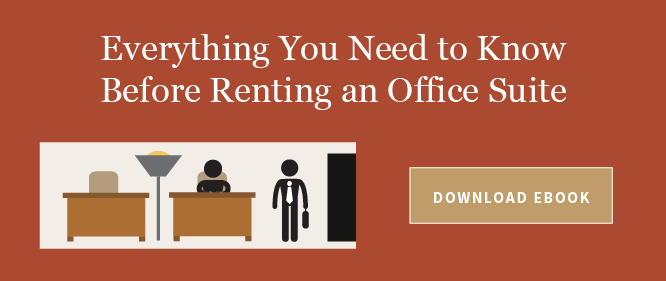Whether you are the owner of a small business, or an executive charged with the task of finding a satellite office for the corporation you work for, you are likely to be considering the two broad categories of office space types – An Executive Suite or conventional Office Space. There are similarities as well as distinct differences.
Conventional Office Space is typically leased for long periods of time to obtain the most favorable price. Periods of 3 to 5 years or longer are common. Conventional space in a professional, Class A building in some locations such as the Tri-Valley in Northern California, is often not available under 1,000 square feet. Each feature or amenity may have to be purchased or leased individually such as phone systems, Internet, furnishings. The general rule is that the longer the lease period, the lower the price. This works out well for some businesses with several employees who know they can rent for long periods of time. This doesn’t work so well for smaller businesses, small satellite or branch offices, start ups, or certain business types. The longer commitment period, and the larger square footage requirements can spell pressure for those that need more flexibility.
Executive Suites offer smaller office space plus shared amenities such as lobbies, reception areas, receptionist personnel, break rooms, conference rooms. Thus, the business owner is able to rent less space for an office and use the common areas which are included. Typically an agreement for space can range from month-to-month, to periods of 6, 12, or 18 months. Executive Suites are “plug and play” – like an Office Hotel, they are fully furnished including artwork, décor, Internet, and phone. Typically there is one price for everything making this an affordable and professional option without long term commitments or large start up costs.
For example, Bill is an attorney who works alone and needs an office the size of a typical bedroom, 125-150 square feet. His clients enter a beautiful building, with a professionally furnished lobby, receptionists to greet his clients offering coffee as they let Bill know that his clients have arrived. Bill has instructed the receptionist to either bring the clients into his office or into the conference room he has reserved for this meeting. Bill has all the features and amenities of a professional in a professional environment at an affordable monthly rate.
If you are looking for workspace exceeding 1,000 square feet, contact a good Real Estate Broker who specializes in commercial office space. If your office needs are for smaller space, less certain time frames, low start up costs, and one, all inclusive price, then contact a professional Executive Suite Business Center.


